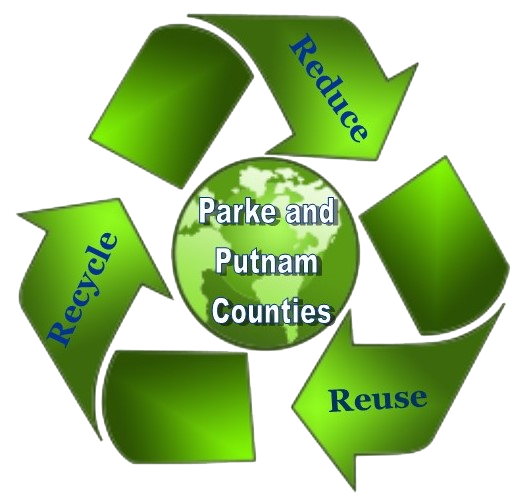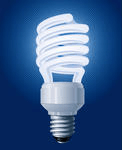What Do I Do With...
Paint
The Good, The Bad, & The Ugly
These cans may look harmless, but they can be quite dangerous!
Oil Based, Enamel, Spray Paint, Polyurethanes, Stains:
These items are considered hazardous and should not be placed in your trash. If you are unsure if a paint product is hazardous, just check the cleanup instructions on the can/container. If you are instructed to clean up with anything besides soap and water (such as paint thinner or mineral spirits) the product should be treated as hazardous waste and brought to a Tox-Away Day for proper disposal. The District sponsors Tox-Away Days annually – look for details under the “Programs/Services” section of this website. Never pour hazardous wastes down the drain or onto the ground!
Dry out your Latex Paint!
Latex paint is “not” hazardous (water-based) and can be hardened and placed in your regular trash. Just follow these easy steps:
- Mix the paint that is left in the can with an equal amount of cheap kitty litter, sand or shredded newsprint. If the can is 1/2 full or less, you can do this right in the can. If it is more than half full, line a cardboard box with a trash bag, put the kitty litter in the bottom and pour the paint on top.
- Stir well and leave the lid off. In a day or two the paint will be dried solid.
- When the paint is dried solid, leave the lid off and put it out for your regular trash pickup. Sanitation workers will not pick up closed paint cans — they can’t tell if it is solid or not, and liquid paint cannot go in the landfill.
Mercury Spills / Clean Up
Mercury can be found in a variety of household, commercial and industrial items such as fever thermometers, thermostats, and irons. Mercury is toxic to humans and wildlife and should be managed properly. When liquid (elemental) mercury is spilled, it forms beads or droplets that can accumulate in the tiniest places. These droplets can emit vapors into the air that we cannot see or smell. Breathing mercury vapors can be VERY dangerous; depending upon how much mercury is in the air and how long you breathe the contaminated air.
Most small mercury spills (fever thermometers) can be cleaned up easily. Please follow these instructions carefully for cleaning up a small household mercury spill.
- Be sure to secure the area for prevent further contamination spread.
- Keep the room under 70 degrees F to minimize mercury evaporation.
- Close inside doors but open exterior doors or windows and move air through.
- Don’t spread the contamination by walking to other rooms in the house.
- Use a flashlight to look for mercury beads, the light will reflect off the shiny mercury beads. For best results, turn off other lights in the area.
- Contain the spill by mounding disposable rags around the spill.
- Push the mercury beads together with a card or stiff paper. Mercury beads roll very quickly, so be careful!
- Use an eyedropper or turkey baster to pick up the beads.
- Collect all mercury into a leak-tight plastic bag or a wide mouth sturdy plastic container with a screw on lid.
- Recheck the area with your flashlight.
- Optional step: sprinkle sulfur powder on the spill area. If the powder changes from yellow to brown, more cleanup is necessary. If the powder stays yellow, cleanup was successful!
Suggested equipment and supplies for a mercury spill
- Latex or rubber gloves
- Tweezers (for picking up any glass particles)
- Goggles to protect your eyes
- Damp paper towels to contain the spill
- Rubber squeegee
- Plastic dust pan, index cards, playing cards, or other rigid paper
- Zipper-shut plastic baggies, or wide-mouth container and lid and plastic trash bags
- Flashlight
- Eyedropper or other suction device
- You may also use electrical tape to “pick up” mercury, just be careful because they don’t always stick
If the mercury was spilled over a drain or sink that goes to your wastewater treatment plant or septic system, you will need to look in the “S” trap for liquid mercury. If the mercury is in your plumbing, it will slowly evaporate into your house. Be careful when taking apart your plumbing, mercury is very slippery and will easily spill out of the trap! Work over a large plastic tray or bucket. Place the trap and its contents in a sealable plastic container and install a new trap.
Some Things you should NEVER do when cleaning up mercury...
NEVER
use an ordinary vacuum or shop vacuum…vapors will be blown around and the sweeper will become contaminated.
NEVER
use a broom or paintbrush…you will break the mercury into even smaller beads and further scatter the mercury.
NEVER
use household cleaning products, especially those containing chlorine or ammonia…a violent reaction may occur, further increasing the release of toxic fumes.
NEVER
allow people with contaminated shoes or clothing to walk around your house.
NEVER
put mercury in the trash.
NEVER
put mercury in a burn barrel.
NEVER
pour or allow mercury to go down the drain.
Get an experienced professional to clean up big spills! A spill is considered “big” if it contains two tablespoons or more of mercury. A spill of this magnitude in a household should be considered very serious. If the mercury spill is on a porous surfaces, such as carpet, or if the mercury droplets are widely dispersed in a room, it is best to call for professional assistance immediately.
IDEM Spill Hotline
1.888.233.7745
1.800.988.7901
Broken Fluorescent Bulbs / Tubes
Compact-fluorescent bulbs (CFL or curly cue bulbs) contain small amounts of mercury.
About 4 mg of mercury is contained within a compact-fluorescent bulb. This amount is about the size of the tip of a ballpoint pen. Standard 4-ft. fluorescent tubes contain 10 times that much. Neon lights have 25 times as much, and a standard residential wall-mounted thermostat contains 750 times as much.
How to clean up a broken fluorescent light.
If a fluorescent tube or compact-fluorescent bulb breaks in your home, don’t just reach for the vacuum cleaner. Instead, follow the EPA’s cleanup instructions.
If a fluorescent tube breaks on a hard surface:
- Open a window, and leave the room for 15 minutes or more.
- Scoop up the fragments and powder with stiff paper or cardboard, place them in a plastic bag, and seal it.
- Wearing disposable rubber gloves, wipe the area clean with damp paper towels, and place the paper towels and the gloves in a plastic bag.
- Put the first bag in a second plastic bag, seal it, and put it in an outdoor trash container.
- Wash your hands.
If a fluorescent tube breaks on a carpet:
- Remove as much glass and powder as you can with stiff paper or cardboard.
- Use the sticky side of duct tape to pick up the smaller pieces.
- Place the debris and the tape in two plastic bags, and seal them.
- When all the visible materials are removed, vacuum the area, remove the vacuum bag, and put the bag or vacuum-canister debris in two sealed plastic bags in the outdoor trash for disposal.
Unwanted/Expired Pharmaceuticals
Unwanted and expired medicine may be a risk to human health and the environment if disposed of improperly. Wastewater treatment plants and septic systems are not designed to deal with pharmaceutical waste. Many medicines pass through the systems and are released into streams, lakes, and groundwater.
Unwanted Medicine Drop Off Sites:
Putnam County
Putnam County Sheriff’s Department
13 Keightly Road
Greencastle, IN 46135
765-653-2311
Drop Off – M-F, 8-4
Greencastle Police Department
600 N Jackson Street
Greencastle, IN 46135
765-653-3108
Drop Off – 24/7
Parke County
Parke County Sheriff’s Department
458 Strawberry Rd.
Rockville, IN 47872
765-569-5413
Drop Off – 24/7
*NON-CONTROLLED MEDICATION, SHARPS AND LANCETS CAN BE DROPPED OFF AT ANY TOX-AWAY DAY (See Tox-Away section above on this page)
For More Locations – Indiana Prescription Drug Take Back Locations & Programs
Used Cell Phones / Eye Glasses
Donate, Donate, Donate...
Don’t Trash it, Reuse it!
- Cellphones
- Cellphones for Soldiers
- Sprint
- Eyeglasses – West Central Solid Waste District’s office is a drop off site for the Lions Club Eye Glasses Recycling program. Donate your unneeded eyeglasses and hearing aids at local Wal-Mart stores or the West Central Solid Waste District office. Look for the Lions Club collection box.



